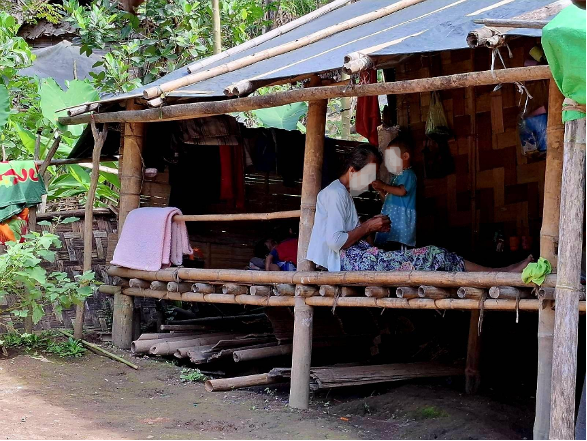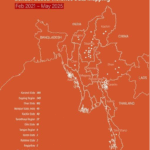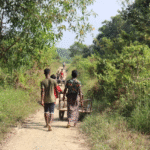Since the military coup in 2021, the vaccination rate for children under 5 years old in areas controlled by revolutionary forces in Karenni (Kayah) State has been only 30 percent, according to the Health Department of the Karenni State Interim Executive Council (IEC).
Collecting data is challenging as fighting continues in the region, and local residents in Karenni State are forced to flee from one place to another. According to the list compiled in 2021, only 30 percent of children under the age of 5 have been vaccinated, according to Khun Philip, the head of the IEC health department.
“Currently, only 30 percent of the population has been vaccinated based on the data collected earlier. We are unable to reach the remaining 60-70 percent due to various challenges. Another issue is that it is difficult for us to gather an accurate population census as internally displaced persons (IDPs) keep moving from one place to another,” said Khun Philip.
Before the coup in Myanmar, female nurses vaccinated newborns and children under 5 years of age at hospitals, clinics, and in villages.
However, the vaccination of children has become difficult due to political changes following the coup, drug shortages, and ongoing regional armed conflicts.
Children from infancy to one and a half years old are required to receive 11 types of vaccines, and the health department has stated that these vaccinations are most effective when administered at specific ages.
A mother of a one-year-old child said that they had to travel to the western part of Demoso Township, where regular vaccinations are available, as children in villages and IDP camps lack access to healthcare.
“People from our village have to travel to Demoso for vaccinations. Because it’s a long trip, we need two days for the round trip. We have to inquire in advance about where we can get the vaccine, as it’s not always available. We have to go at the right time when the vaccine is in stock,” she said.
Khun Philip stated that children who do not receive regular vaccinations may face additional health complications, including poor health, frequent illness, lack of immunity, and even death, as preventable diseases can no longer be avoided.
Khun Philip said, “If the children do not receive this vaccine, preventable diseases may no longer be stopped. As a result, it could lead to deaths when people contract these diseases. There could be mass outbreaks of diseases like polio and measles, which are common among children. Without vaccines, there may be widespread deaths.”
Vaccines must be stored at specific temperatures, and the transportation of vaccines in ice buckets from one place to another often faces delays. As a result, regular vaccinations for children in Karenni State could be delayed.
The IEC has not yet been able to fully provide vaccinations for children under 5 years of age. According to their records, the IEC has opened over 100 hospitals and clinics in townships and villages across Karenni State. However, the IEC is still working to ensure coverage for all areas.
Sent by Kantarawaddy Times




